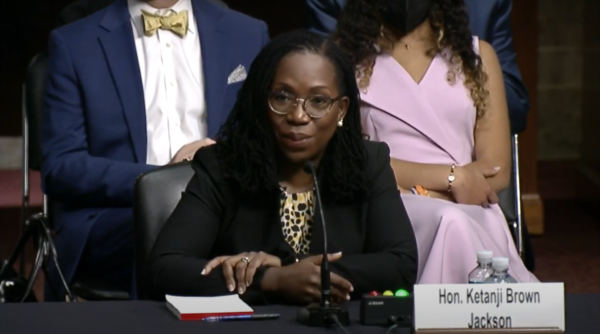Number of Black Women Serving on Federal Appeals Courts to Double Under Joe Biden
President Joe Biden is set to double the number of Black women serving on federal appeals courts as the Senate moves forward with clearing his nominees.
U.S. District Court Judge Ketanji Brown Jackson was cleared in the Senate by a vote of 53-44 on June 10, then confirmed on Monday June 14 to a seat on the U.S. Court of Appeals for the District of Columbia Circuit.
Three other Black women, Tiffany Cunningham, Eunice Lee, and Candace Jackson-Akiwumi are also on track for confirmation.
Cunningham has been picked to serve to serve on the U.S. Court of Appeals for the Federal Circuit, while Jackson-Akiwumi has been named for a seat on the U.S. Court of Appeals for the 7th Circuit. Lee has been nominated to the United States Court of Appeals for the 2nd Circuit, which includes parts of New York, Vermont and Connecticut.
Two more Black women, Angel Kelley and Karen Williams, have also been named as nominees to serve on district courts. Kelley is nominated to the U.S. District Court for the District of Massachusetts, and Williams to the U.S. District Court for the District of New Jersey.
There are currently four Black women serving on federal appeals courts out of more than 170 active judges, and Biden’s nominees would expand that figure to eight, if confirmed. At least one Black woman will serve on half of the circuit courts in the nation if all of Biden’s picks are cleared.
If all three are appointed and none of those currently serving retire, there would be the largest number of Black women in history to serve on an appellate court at one time.
Jackson is widely viewed as a Supreme Court pick should there be a vacancy on the court while Biden is in office. Biden promised during his campaign that he would put the first Black woman on the Supreme Court. It’s typical for Supreme Court justices to be elevated from federal appeals courts. All but one of the past 12 confirmed justices, with the exception of Elena Kagan, who served as U.S. solicitor general, were plucked from an appellate court.
Another Black female judge, California Supreme Court Justice Leondra Kruger, is also considered a frontrunner to be named to the highest court in the land if a vacancy arises.
All of those in opposition to Jackson were Republicans, although three members of the GOP voted to approve her nomination.
At an April Senate hearing, Jackson said race doesn’t play a major role in her work as a judge. “I don’t think that race plays a role in the kind of judge that I have been and would be,” Jackson said. “I’m doing a certain thing when I get my cases. I’m looking at the arguments, the facts and the law. I’m methodically and intentionally setting aside personal views, any other inappropriate considerations, and I would think that race would be the kind of thing that would be inappropriate to inject into my evaluation of a case.”
The Biden administration has nominated 18 federal judges, and more than 80 court vacancies remain.

